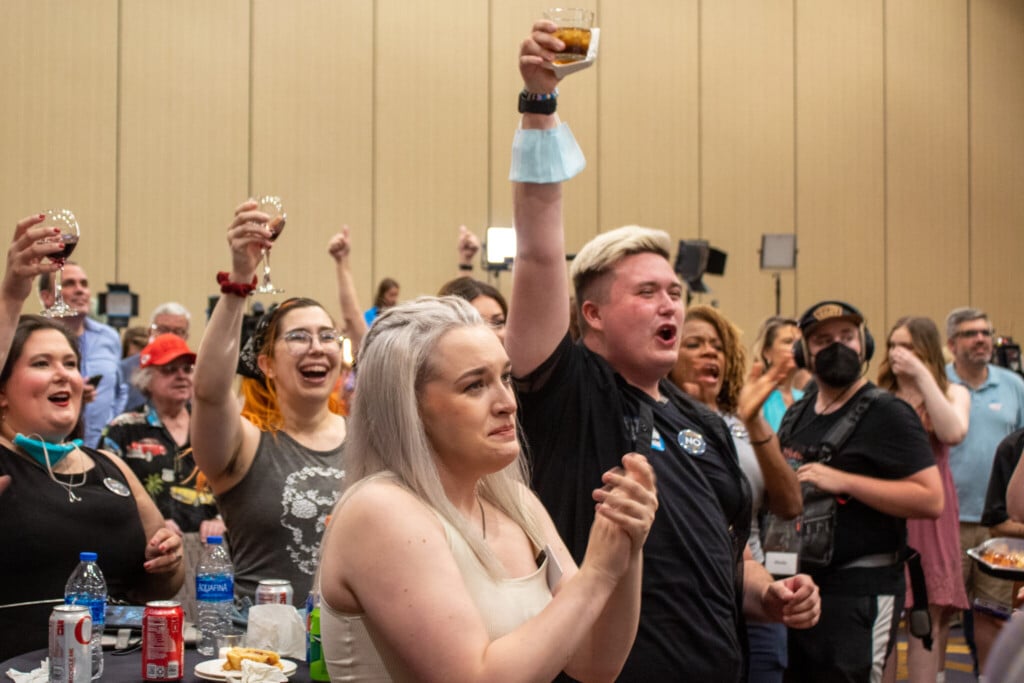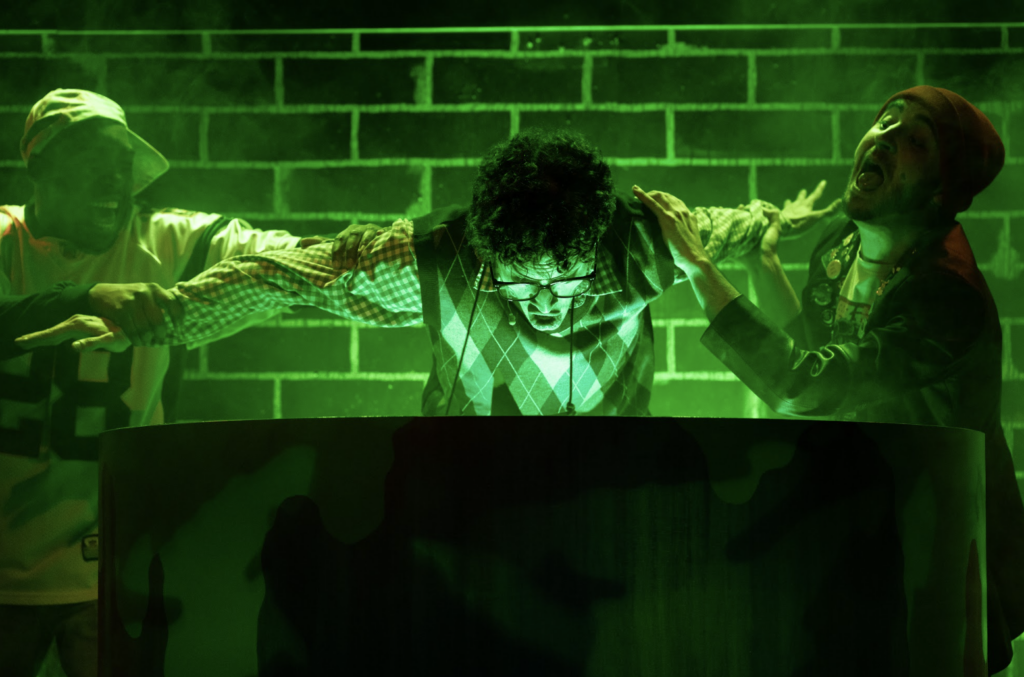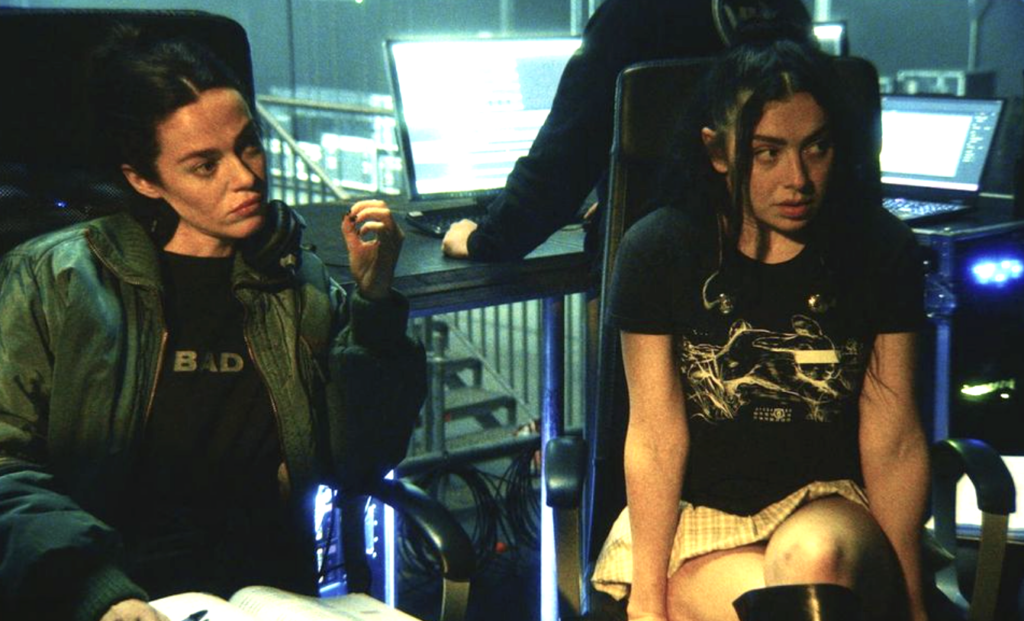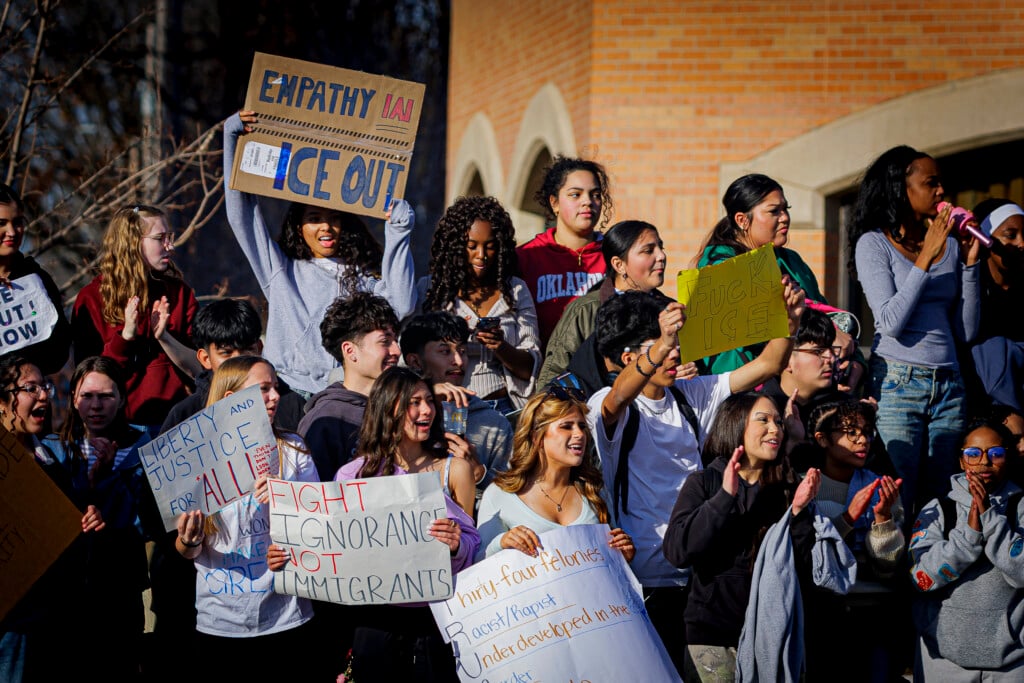Jah Rules
As of now, everything at the Hangout is just as it was before young entrepreneur Tony Choi took over the place on Monday, October 10, and dropped the word Bobby’s from its name. The interior is still lush and crimson with velvet curtains lining the wall, there’s still that Lost City of Atlantis chandelier over the bar, and Shepard Fairey‘s graphic homage to Bobby Seale still greets people heading upstairs to the restrooms or upper lounge.
Even though the place changed hands right around the time the Pitch awarded it a “Best Of” for its KC authenticity, you can still find a couple of dapper, older black gentlemen keeping it real on any given night, drinking cocktails and flirting with the chicks at the bar. But with the variety of music and DJs Choi plans to book, there’s no telling how long the regulars will be inclined to stick around.
With any luck, though, Wednesday nights will bring back a certain type of music — quite possibly the one genre most famous for bringing blacks and whites and kids and geezers together in Kansas City and everywhere else.
Reggae, mon.
Never having seen live reggae in KC, I watched curiously as the AZ-One Reggae Band set up in the small corner stage at Bobby’s last Wednesday. I expected at least half a dozen musicians to arrive, women with scarves wrapped around their heads and barefoot hippies with bongos. But the universally named AZ-One (“as one”) consists only of Elisha Israel on bass and vocals, Ed Turner on double-decker keyboards, Chris Lee on drums and, occasionally (but not that night), Dennis Brock on guitar.
Despite the minimalist setup, AZ-One let loose with a wave of tight, dubby roots reggae that warmed the room like a bottle of spiced dark rum. A young black woman with braided hair sprang onto the floor with primal energy, legs wide and hips loose, busting moves that may not have been seen around here since reggae festivals were held in the field where Marsh’s Sun Fresh in Westport now stands. An older white couple followed suit — in spirit if not nearly in body — and the rest of us seated at the candlelit tables bobbed our heads and watched bandleader Israel high-step behind his bass, never missing a line as he whirled in place and lifted his knees as high as the low string on his guitar.
The dance floor never really got going, but the joint filled with a diverse crowd, and the bartenders had to hustle buckets of ice to the upstairs and downstairs bars.
The next day, Israel shows up for an interview resplendent in thin, neat dreadlocks, shades, a shell necklace and a ready smile. The 45-year-old says he moved to Kansas City in 1987 because he’d heard it was a good area for reggae. Born in a small coastal town in North Carolina, Israel is a welder by trade; he had been living and working in Tulsa, Oklahoma, when he picked up his bass again and came north. The Kansas City reggae musicians’ headquarters was a music store and studio at 47th Street and Troost where Israel and his colleagues, Jamaican and American, would hang out, lay down tracks and jam with visiting artists, such as Sidney Wolf of Jimmy Cliff‘s band and Garth Dennis of the Wailing Souls and Black Uhuru, to name a couple whom Israel remembers. Israel’s original band was the One Drop Band, members of which are still with him in AZ-One.
Times have changed for reggae in Kansas City, but Israel carries a bright torch for the traditions of the music he plays. He talks about “livity,” the notion of living the music rather than merely playing it. He doesn’t drink or smoke — either tobacco or the notorious ganja. He stays in shape, and he’s devoted to his wife and children. As for his devotion to Jah, well, it’s hard to tell.
“I really don’t put myself in the category of ‘I’m this and I’m not that,’ because that’s a form of segregation, and I learned that at a very young age,” he says. “If they want to call me a Rasta man, sure, that’s fine. If they want to call me a Christian man, that’s fine — as long as they understand that I’m walking with love and respect. And they have to feel it. They have to get that love and energy vibrating off me.”
He laughs when I point out that it’s a good thing he doesn’t suck. Nothing’s worse than an overearnest, spiritually and politically motivated musician who can’t write good songs (ahem, Melissa Etheridge). But even though Israel’s latest album, Crucial Times, lacks the fire — and, to its great detriment, the real drummer — of AZ-One live, the band’s biggest problem isn’t musical talent. Rather, Israel says, it’s marketing.
“Chris Blackwell marketed the Wailers like a rock band,” he says, referring to the founder of Island Records, Bob Marley’s home label. Israel wants to see reggae fliers and posters all over town for the few shows his and other bands do, but there’s simply not a network in place — or demand from the rock-loving majority — for that kind of promotion. Reggae fans will just have to settle for a regular jam at the Hangout for now. (AZ-One plays again October 26.) And that’s no small victory.
“There’s definitely a reggae following in this city. It’s just, right now the problem is we don’t have a venue we can go to regularly,” says Sista G. , host of 90.1 KKFI’s Sunset Reggae. She remembers when Wednesday nights at the old Grand Emporium were the gathering place for all Jah’s children.
If the Hangout measures up — and my hunch is it will — then the Kansas City reggae scene will be irie once again. For a preview, head out to G’s Jamaican Cuisine at 7940 Troost Thursday for a Hurricane Katrina benefit featuring Greencard, Yucca Roots, Jah Lion and other local reggae bands you didn’t even know existed.




